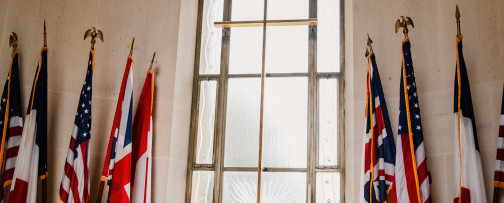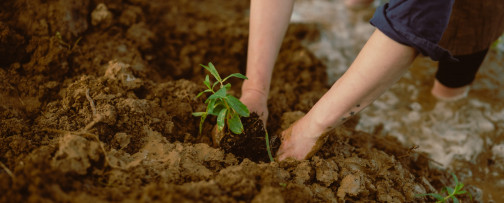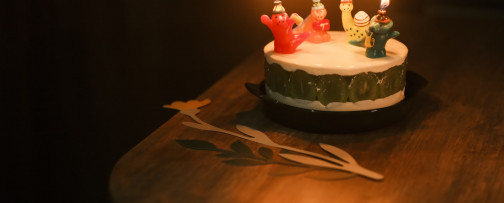Memorializing ancestors is a practice that has been carried out for centuries across different cultures and societies. It is a way of honoring and remembering the lives of those who came before us, and it plays a crucial role in shaping our identity and understanding of self. This article will delve into the significance of memorializing ancestors, the different methods of doing so, and the impact it has on individuals and communities.
Understanding the Concept of Ancestor Memorialization
Ancestor memorialization is more than just a tradition; it is a way of life for many. It involves recognizing and respecting the contributions and sacrifices of our forebears. It is a way of keeping their memory alive, of connecting with our roots, and of understanding our place in the world.
Memorializing ancestors can take various forms, from simple acts of remembrance to elaborate rituals and ceremonies. Regardless of the method, the underlying principle remains the same: to honor and remember those who have passed on, and to draw strength and wisdom from their experiences.
Why Memorialize Ancestors?
Memorializing ancestors serves multiple purposes. Firstly, it is a way of paying tribute to the lives and achievements of our forebears. By remembering them, we acknowledge their contributions to our lives and to society at large.
Secondly, it helps us understand our roots and heritage. Our ancestors' experiences, values, and traditions shape our identity and worldview. By memorializing them, we gain a deeper understanding of who we are and where we come from.
Lastly, it fosters a sense of continuity and connection. Memorializing ancestors bridges the gap between the past, present, and future, and creates a sense of belonging and unity among family members and communities.
Methods of Memorializing Ancestors
There are numerous ways to memorialize ancestors, and these methods often vary across different cultures and societies. However, some common practices include creating memorials, holding commemorative ceremonies, and preserving family histories and traditions.
Creating Memorials
Creating physical memorials is a common way of honoring ancestors. This can take the form of gravestones, plaques, or monuments inscribed with the names and details of the deceased. These memorials serve as tangible reminders of our ancestors and provide a place for reflection and remembrance.
Virtual memorials are also becoming increasingly popular. These online platforms allow individuals to create personalized memorials for their ancestors, complete with photos, stories, and tributes. Virtual memorials offer a unique way of preserving memories and sharing them with others.
Commemorative Ceremonies
Commemorative ceremonies are another common method of ancestor memorialization. These ceremonies can range from simple family gatherings to elaborate rituals involving entire communities. They often involve acts of remembrance such as lighting candles, offering prayers, or sharing stories about the deceased.
These ceremonies not only honor the memory of our ancestors, but also provide an opportunity for family members and communities to come together and strengthen their bonds.
Preserving Family Histories and Traditions
Preserving family histories and traditions is another important aspect of ancestor memorialization. This can involve documenting family stories, maintaining family heirlooms, or practicing traditional customs and rituals.
By preserving these histories and traditions, we keep the memory of our ancestors alive and pass on their legacy to future generations.
The Impact of Memorializing Ancestors
Memorializing ancestors has a profound impact on individuals and communities. It fosters a sense of identity and belonging, strengthens family and community bonds, and provides a source of comfort and solace.
Identity and Belonging
Memorializing ancestors helps us understand our roots and heritage. It gives us a sense of identity and helps us feel connected to our family and community. By remembering our ancestors, we gain a deeper understanding of who we are and where we come from.
Family and Community Bonds
Memorializing ancestors also strengthens family and community bonds. Commemorative ceremonies and rituals bring people together and foster a sense of unity and belonging. They provide an opportunity for individuals to share memories, express emotions, and support each other.
Comfort and Solace
Lastly, memorializing ancestors can provide comfort and solace. Remembering our ancestors can help us cope with loss and grief, and provide a sense of continuity and hope. It reminds us that we are part of a larger story, and that our ancestors' lives and experiences continue to live on through us.
Conclusion
In conclusion, memorializing ancestors is a significant practice that has profound implications on our identity, relationships, and well-being. It is a way of honoring and remembering those who came before us, and of preserving their legacy for future generations. Whether through creating memorials, holding commemorative ceremonies, or preserving family histories and traditions, memorializing ancestors is a meaningful and impactful practice that deserves our attention and respect.
Recommended Products
- Woodamore Share a Memory Cards — Beautiful 50-pack memory cards for celebrating the life of a loved one at memorials and gatherings.
- Skylight Digital Picture Frame — A touchscreen digital frame that lets family share photos by email — perfect for displaying a slideshow of cherished memories.
- 3D Innovation Crystal Photo — Custom-engraved 3D crystal photo block that beautifully preserves a cherished portrait.


-banner.png)





